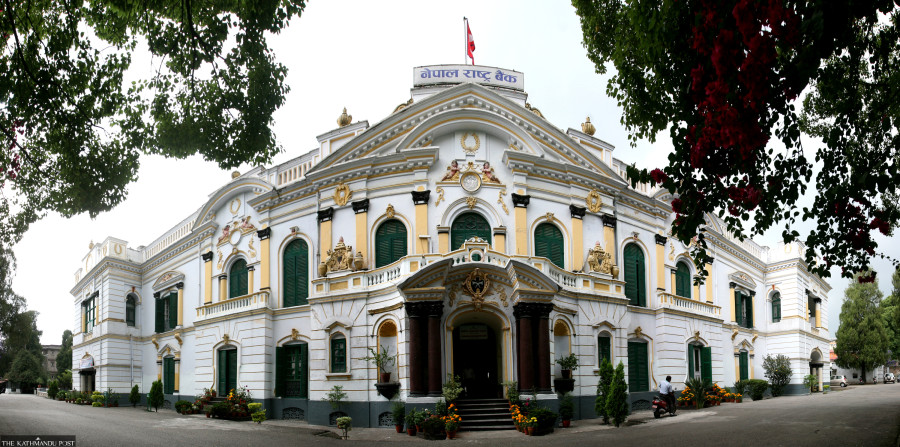Money
Nepal bars representative offices of foreign banks from engaging in banking activities in Nepal
Such offices should confine themselves to liaison and research activities, according to a new rule brought by the Nepal Rastra Bank.
Prithvi Man Shrestha
The Nepal Rastra Bank has come up with a new rule to bar Nepal-based representative offices of foreign banks and financial institutions from engaging in banking transactions in the country.
The ‘Foreign Bank Branch Licensing Policy-2022 introduced by the central bank on Wednesday says the business of a representative office of a foreign bank or financial institution must be confined to the conduct of liaison and research activities.
The new policy, which has made policy arrangements regarding the representatives offices for the first time, replaces the Policy Provision for Opening Branch Office by Foreign Bank or Financial Institutions in Nepal, 2010.
“Earlier we had allowed a few foreign banks to open their representative offices here by setting certain conditions,” said Dev Kumar Dhakal, executive director at the banks and financial institutions regulation department at the central bank.
“Now this new policy will be applicable to all foreign banks that want to open their representative offices in Nepal.”
Currently, the ICICI Bank, Mashreq Bank and Doha Bank have their representative offices in Nepal, according to Dhakal.
As per the new policy unveiled on Wednesday, the representative office of a foreign bank cannot solicit and receive deposits. The policy also bans such office from granting loans; drawing, accepting, endorsing or discounting bills of exchange; establishing letters of credit; dealing in or issuing securities; dealing in derivative products; buying or selling foreign exchange; and complaints handling and/or dispute resolution in relation to any financial services business conducted in Nepal.
The representative office must not engage directly in financial transactions within Nepal or overseas, according to the policy.
The activities of the representative office must be kept separate from those of any financial enterprise operating in Nepal, as per the new policy. “In particular, a representative may not also be an employee or director with day-to-day responsibilities of any financial enterprise operating in Nepal, and the representative office must be distinctly located from the office of any other financial enterprise,” the policy reads.
With regard to the appointment of chief representative of the foreign bank, the new policy says such a person should not have committed any banking fraud.
The permissible activities for the representative office include: conducting research on Nepal’s economy; liaising with Nepali customers of the foreign bank or financial institution; promoting the services of the foreign bank or financial institution other than an affiliate incorporated in Nepal; and providing information relating to the products and services of the foreign bank or financial institution upon request.
The Nepali central bank must be informed immediately of any change in the arrangements for the foreign bank or financial institution oversight of its representative office in Nepal.
Likewise, a foreign bank or financial institution, which has a representative office in Nepal, must immediately inform the Nepali central bank of any significant developments adversely affecting its financial soundness and/or reputation globally, according to the policy.
A foreign bank or financial institution, having a representative office in Nepal, must promptly provide the Nepali central bank each year with a copy of its published financial statements along with major financial indicators.
A consent of the central bank is necessary to establish representative offices in more than one location in Nepal or to share a representative office with another foreign bank, the policy states.
Foreign banks or financial institutions which have incorporated a bank or financial institution in Nepal as a subsidiary company holding joint or cent percent shares shall not be allowed to open a branch or representative within Nepal, the new policy states.
When it comes to provisions for establishing branches of foreign banks and financial institutions, most of the provisions in the new policy remain the same including the capital requirement of $20 million US dollar.
According to the new policy, only those foreign banks or financial institutions with ‘investment grade’ rating can operate a branch office in Nepal.
The earlier policy required the foreign bank or financial institution concerned to produce a letter attesting it has achieved at least BBB rating from the Standard & Poor or BAA rating by the MOODY'S or equivalent ratings by other reputed agencies.
“We have not specified what investment grade means. But, it essentially refers to a rating of at least BBB,” said Dhakal.




 9.89°C Kathmandu
9.89°C Kathmandu















